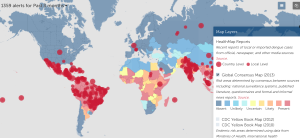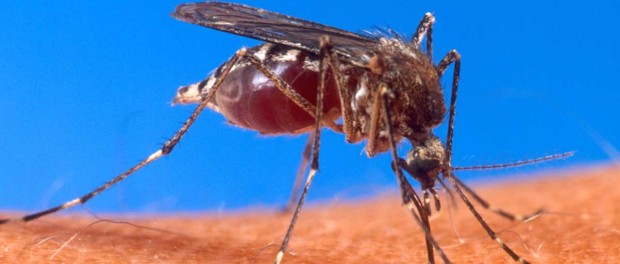Dengue Fever – Sorry to be the Bearer of Bad News
I don’t like mosquitoes. It’s one of the reasons I loved living in Southern California, especially after paying my mosquito-dues living in places where they seemed as big as Buicks, like Minnesota and even Connecticut. This mosquito hat with net is what I wear gardening for instance. It looks funny but it WORKS, so it’s a great invention!
Mosquitoes irritate when they buzz you and getting a bite isn’t fun for a few days. But those annoyances still weren’t enough to make me want to put any repellent with deet on my body because of its nasty health risks. But the health risk-deet balance shifted when I learned that Dengue Fever has reached the Caribbean…in a vengeance, and that it can be fatal.
How Dangerous is Dengue?
There is no vaccine for Dengue ** NOTE 2017 UPDATE – Vaccine may be Imminent ** and if you get it more than once, you can bleed to death internally, so you just have to use the best repellent you can find, and cover up. We detest mosquitoes and get a bit crazed making sure we are buttoned up at dusk because we’ve found the critters live for days if they get in the boat. Rand is especially tasty to them – how could they not be drawn to his sweetness – which is good for me; I just need to stay close to him and be less bitten…following the old adage, you don’t have to outrun the bear, just who you’re running alongside. But protection measures change when you learn that mosquitoes in the Caribbean carry Dengue Fever.
Dengue’s Symptoms
Dengue is a debilitating, sometimes fatal illness endemic to much of the tropics. Caused by a mosquito-borne virus, the symptoms are high fever, severe headache, severe pain behind the eyes, joint pain, muscle and bone pain, rash, and mild bleeding (e.g., nose or gums bleed, easy bruising) — in the most serious cases — hemorrhage and fatal shock (more detailed specifics from the Center for Disease Control below).
Dengue Risk is Throughout The Daytime
Take note – mosquitoes that carry Dengue bite during the DAYTIME, so it’s not only at dusk where you’re more likely to be at risk of Dengue.
Dengue is Worse if You Get it More Than Once
As if that wasn’t bad news, we also learned that if you get Dengue, unlike many illnesses that you build up immunity to and can’t get a second time, Dengue gets more serious the second time around and can be fatal The reason is that there are four strains of Dengue and if you contract one the first time, and any one of the other three strains the second time round, your body will use all its resources to fight what it thinks is the first strain, leaving it defenseless against the new virus. You may then get Dengue Hemorrhagic Fever – which effectively destroys the platelets that cause blood to clot, meaning you can bleed to death.
Where is Dengue Fever?
Reported outbreaks are clustered around the Caribbean, in southern Brazil, western India and Bangladesh and in countries surrounding the South China Sea. The high season for Dengue in the Caribbean is March-June, and the low season is August until November.  What should you do if you think you have Dengue?
What should you do if you think you have Dengue?
Obviously, see a doctor (please don’t consider this medical advice). According to the CDC, symptoms of infection usually begin 4 – 7 days after the mosquito bite and typically last 3 – 10 days. The principal symptoms of dengue are:
- High fever and at least two of the following:
- Severe headache
- Severe eye pain (behind eyes)
- Joint pain
- Muscle and/or bone pain
- Rash
- Mild bleeding manifestation (e.g., nose or gum bleed, petechiae, or easy bruising)
- Low white cell count
Generally, younger children and those with their first dengue infection have a milder illness than older children and adults. The CDC says there is no vaccine and no specific medication for treatment of a dengue infection. Persons who think they have dengue should use analgesics (pain relievers) with acetaminophen and avoid those containing aspirin. They should also rest, drink plenty of fluids, and consult a physician. If they feel worse (e.g., develop vomiting and severe abdominal pain) in the first 24 hours after the fever declines, they should go immediately to the hospital for evaluation.
- Severe abdominal pain or persistent vomiting
- Red spots or patches on the skin
- Bleeding from nose or gums
- Vomiting blood
- Black, tarry stools (feces, excrement)
- Drowsiness or irritability
- Pale, cold, or clammy skin
- Difficulty breathing
Sorry to be the bearer of such a serious warning, but it’s better to know the risks so you can take appropriate precautions. If you’re in a Dengue-prone area, even if you don’t normally use deet, perhaps you’ll want to reconsider using it if you’ll be ashore.


Leave a comment